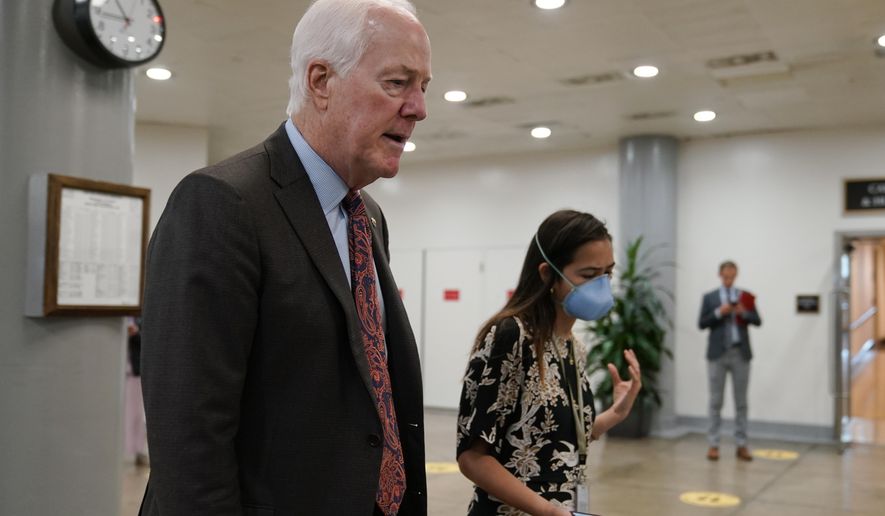Republicans are getting antsy about Congress’ bipartisan gun deal, with GOP supporters expressing reservations about the package’s key provisions.
Sen. John Cornyn, Texas Republican, said negotiators had encountered obstacles when translating the deal’s framework into legislation.
“I’m starting to get a little concerned, though, that there are a couple of issues that need to be settled before we can reach an agreement,” said Mr. Cornyn, a lead GOP negotiator.
Fault lines have emerged over the proposal’s incentives for states to adopt “red flag” laws and its broadening of restrictions on gun ownership for people accused or convicted of domestic violence.
Republicans say that since some states will choose not to adopt red flag laws, which allow courts to prohibit people deemed threats from buying or possessing guns, the deal should take that into account. They note that states without red flag laws often have crisis intervention and mental health programs that should be eligible to receive funding under the deal.
“I just don’t think anything that funds 19 states for their programs, but ignores other states that have chosen not to have a red flag law but have other ways to address the same problem, is going to fly,” said Mr. Cornyn.
SEE ALSO: Jan. 6 committee releases footage of alleged reconnaissance tour
GOP lawmakers are also concerned about the proposed new restrictions on gun ownership by those accused of domestic violence. Federal law already prohibits individuals from owning or purchasing guns if they have been convicted of domestic violence against a spouse or someone they lived with or had a child.
The law does not cover individuals convicted of domestic violence against people with whom they were engaged in romantic relationships.
Republicans say that they support closing the so-called “boyfriend loophole,” but worry about how to properly define non-married relationships under law.
“We have to come up with a good definition of what that actually means,” said Mr. Cornyn. “It’s got to be clear and it’s got to be something that can be actually applied because we’re talking about pretty serious consequences.”
The impasse comes as the Senate races to finalize a gun deal before departing Washington next week for the July 4 recess.
At the moment, more than 20 lawmakers have signed on to support a framework agreement that would boost funding for school security and mental health, subsidize state red flag laws, close the “boyfriend loophole” and include juvenile records in background checks for gun purchases.
While at least 11 Republicans are backing the agreement in principle — an important number since most legislation requires at least 60 votes to pass the evenly split Senate — their support is tenuous.
Negotiators fret that if they cannot properly craft the legislation to keep GOP support on board, then they will have to be forced to cut out provisions or risk tanking the whole deal.
“At some point, if we can’t get to 60 then we’re going to have to pare some of this, some of it down,” said Mr. Cornyn.
Democratic supporters say, however, that there is still time to find a compromise.
“The problems and issues are fixable,” said Sen. Richard Blumenthal, Connecticut Democrat. “The timeline is tight, but it is achievable.”
• Haris Alic can be reached at halic@washingtontimes.com.




Please read our comment policy before commenting.